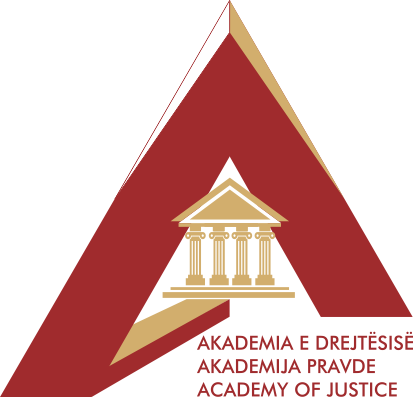
 ACADEMYOF JUSTICE
ACADEMYOF JUSTICE
On September 16, 2019, with the support of USAID, the Academy of Justice organized a training of trainers on: "Legal Writing and Reasoning". The lecturer in this training was Judge Mr. Russell F. Canan, USAID expert.
The purpose of this training was capacity building of judicial trainers in the field of legal writing and reasoning.
The first part of the training covered: Review of materials (syllabus, templates (criminal and civil), reviewing methodologies (lecture / PowerPoint presentation, interactive discussion, hypotheticals and writing exercises, quizzes) as well as discussing possible improvements.
The second part covered the pre-writing phase, discussion of publication requirements, discussion of the use of oral judgments, the use of grammar.
Within this training it was emphasized that there are three basic principles during the drafting process; Increasing efficiency, promoting access and clarity, and ensuring correctness. It was also pointed out that preliminary drafting is the process and methodology for conducting legal research, organizing evidence, and sketching while preparing for the issuance of a sound oral or written judgment. Preliminary legal research helps to identify relevant facts.
Whereas concerning the IRAC method (the case, the rule, analysis and conclusion) it was emphasized that it consists of the mentioned core elements of legal analysis. It is a process that all jurists think about when dealing with any legal problem. Applying this formula reduces the complexity of the law to a simple equation. This method is useful because it gives the reader of the judgment an initial understanding of the case, and shows the path followed for the analysis by the court.
In this training it was emphasized that good legal writing is characterized by accuracy, analytical character, good organization, logic, correctness, persuasive reasoning and clarity.
In this training it was also emphasized that a good legal writing is characterized by accuracy - a solid legal basis, analytically - not to be merely a statement or review of facts and opinions, organized - to have a rule in presenting it - headlines, complete- cover all aspects, specific and concrete — not ambiguous, logical — structure and organization, good grammar, punctuation, persuasive — make the reader believe the writing and clear — easy to understand.
During this training, theoretical explanation methods were used, based on case studies and practice followed by interactive facilitated discussions by trainers, analysis and elaboration of topics, focusing on the application of legal writing principles and other hypothetical cases.
Beneficiaries of this training were the Judicial Trainers of the Academy teaching this subject in the Academy programs.
16-09-2019